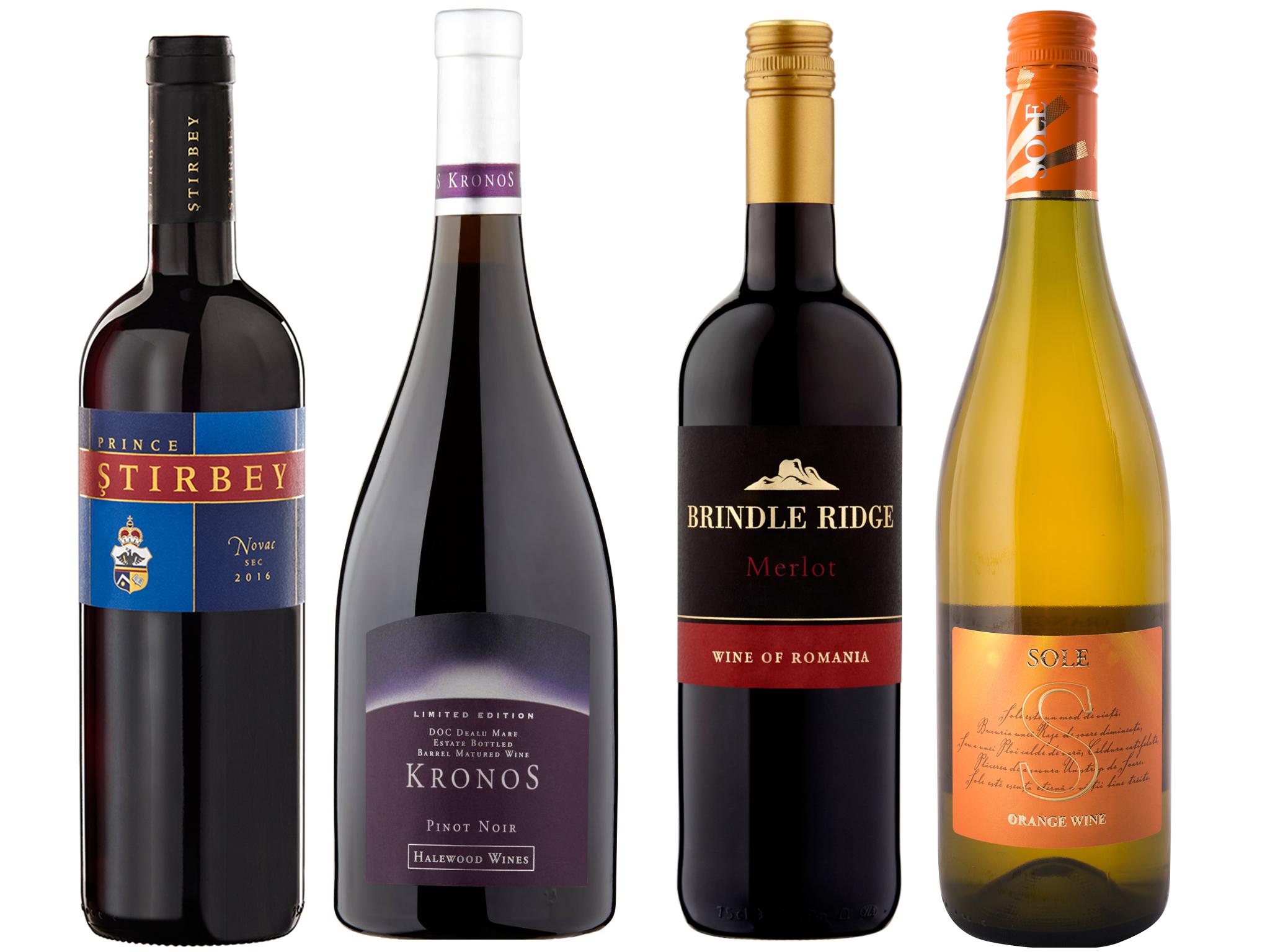The Independent's journalism is supported by our readers. When you purchase through links on our site, we may earn commission.
Wines of the week: Eight good value Romanian wines
This Eastern European country has vines that have been cultivated for thousands of years, plenty of indigenous grapes and low production costs that keep prices very affordable – so why, asks Terry Kirby, aren’t we drinking more of it?

Your support helps us to tell the story
From reproductive rights to climate change to Big Tech, The Independent is on the ground when the story is developing. Whether it's investigating the financials of Elon Musk's pro-Trump PAC or producing our latest documentary, 'The A Word', which shines a light on the American women fighting for reproductive rights, we know how important it is to parse out the facts from the messaging.
At such a critical moment in US history, we need reporters on the ground. Your donation allows us to keep sending journalists to speak to both sides of the story.
The Independent is trusted by Americans across the entire political spectrum. And unlike many other quality news outlets, we choose not to lock Americans out of our reporting and analysis with paywalls. We believe quality journalism should be available to everyone, paid for by those who can afford it.
Your support makes all the difference.Romania is the sixth biggest wine producing country in Europe, with an annual production bigger than that of Greece, Hungary or Austria.
Yet we see comparatively few Romanian wines in the UK. So is there scope for Romania to become a new big thing in wine? Certainly, the rise in interest in eastern European countries should prompt further exploration of Romania, where vines have been cultivated for thousands of years and there is host of interesting indigenous grapes, while low production costs can keep retail prices attractive.
Equally, more than a decade after the Balkan country became a member of the EU we now have many people from Romania living in the UK, which might have some effect on the kind of wines now available online and on the high street.
However, evidence of this at the moment is fairly thin on the ground, with perhaps too much reliance on the dependable, so-called international varieties, like merlot, chardonnay and so on. But hunt around and you might find some gems at very good prices.
At the really budget end, the Spar chain, presumably attracted by the low costs, has several Romanian wines representing good value for money, including the Brindle Ridge Merlot (£5.75 Spar stores) which is a dependable, crowd pleasing guzzler with lots of smooth, plummy fruit flavours and ideal for pizza and pasta, while the luscious Wildflower Pinot Grigio, (£5.75 Spar stores) is much more complex and interesting than some of the Italian takes on the grape and certainly worthy of checking out when you next want to cook some nice fish for a midweek meal.
Even more appealing than both is Burebista Feteasca Neagra Shiraz 2017 (£9.99 laithwaites.co.uk) made in the mountainous region of Muntenia in the south east of the country and where shiraz gives a little spice and structure to the local feteasca neagra grape with excellent results: juicy, with spicy, herby, brambly with a touch of chocolate, flavours. Something of a revelation and an excellent wine for robust meat dishes and hard cheeses. If you like full bodied blends from the south of the France, you will like this.

And so we come to Cramele Recas, now Romania’s largest wine producer – indeed one of the largest in Europe – run by an expatriate Englishman, with an Australian winemaker, working in tandem with local experts, and which produces a range of wines for both the on and off trade in the UK made from local and international grapes. One of these is, of course, pinot noir, which does very well in Romania but in a weightier style than in its more traditional lighter formats in France and Germany. The Solevari Reserve Pinot Noir 2017 (£11.99 virginwines.co.uk) is a terrific introduction for its range and the perfect wine for a Sunday lunch roast chicken or duck. Virgin say you would be pushed to find the same quality from Burgundy, which is not quite comparing like with like and ignores the ethereal perfumed quality of great Burgundy, but for that you will pay massively more in price. For another, equally enjoyable take on Romanian pinot noir, try the Kronus Pinot Noir (£8.99 ocado.com) made by Lorena Deaconu, the winemaker behind the Burebista wine above; both these wines are fullish-bodied, velvety, silky and herby, with a sophistication that belies their price points.
Back to more indigenous grapes and the appealing Prince Ştirbey Tamâioasa Româneasca Sec 2016 (£10.50 thewinesociety.com) from a small winery in the foothills of the Transylvanian Alps, owned by a genuine Romanian princess. Appropriately elegant, it has muscat-like fragrance and a lovely full bodied mouthfeel, which would work well with any seafood and salads.
The companion red, Prince Ştirbey Novac Sec 2015 (£13.95 thewinesociety.com) combines the local negru grape with the lovely Georgian saperavi grape to produce a rich, strong, aromatic and full bodied wine that stays on the right side of freshness. Good for roasted meats and casseroles, it’s a real warming wine to keep out the cold on a Transylvanian night and, once again, punches above its weight on price.
And rest assured that modern wine trends have reached Romania. Cramele Recas may serve the mass market, but it also makes this cutting edge orange wine from chardonnay and viognier grapes, the Sole Orange Wine, Recas Estate 2016 (£12.50 tanners-wines.co.uk; £12.99 gustowines.co.uk) which is richly nutty, spicy, citrusy and very, very distinctive, and a good deal cheaper than many other orange wines. A wine for salty canapes, cured meats and hard cheeses. And a really good invitation to explore Romanian wines.
Join our commenting forum
Join thought-provoking conversations, follow other Independent readers and see their replies
Comments